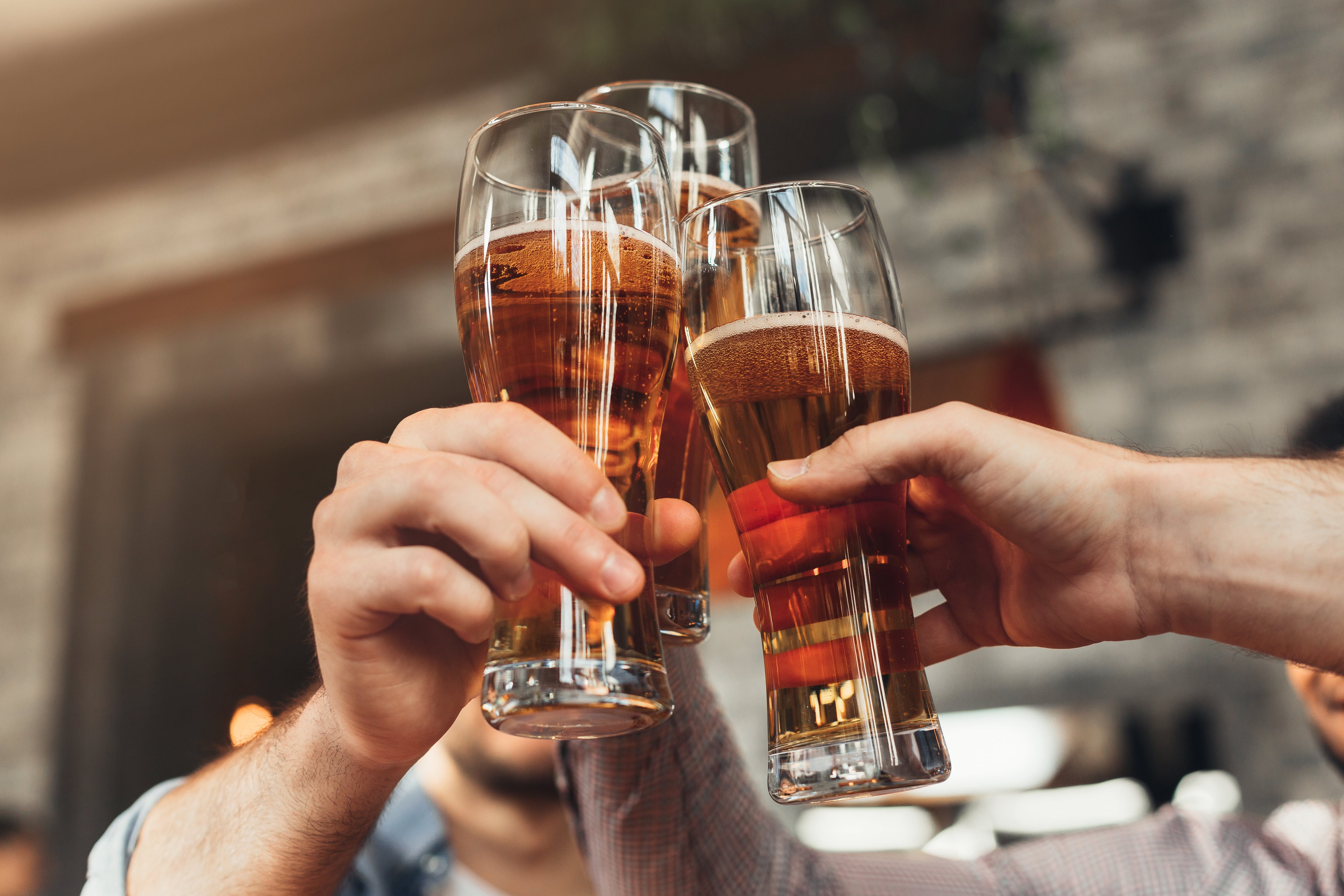Alcoholic beverages might not be where most income investors turn to find dynamic dividend stocks, and after Anheuser-Busch InBev (BUD +1.33%) slashed its payout in half last year, you'd be forgiven for being wary of the space.
Yet the sector tends to offer investors consistent payouts, and a number of companies regularly increase their dividends, all the while exhibiting positive qualities in all kinds of economic conditions. It's a good reason why investors looking for steady, reliable income stocks should check out these three adult-beverage makers.

Image source: Getty Images.
Consistency to count on
A 1.1% dividend yield isn't exactly something to get too excited about, but Brown-Forman (NYSE: BF-A)(NYSE: BF-B) is one of those companies with a stellar record of increasing its payout annually for over 30 years.
Jack Daniel's Tennessee Whiskey remains the distiller's most important brand, accounting for the majority of total net sales. And it has been able to extend the brand's value by creating line extensions that have all proved extremely popular with drinkers, including honey, cinnamon, and (more recently) apple versions.
Brown-Forman has also benefited from the premiumization trend occurring across the alcohol space, with its high-end whiskeys and tequila enjoying double-digit growth in underlying net sales.
Now, it's true that drinker preferences change over time, and a decade ago whiskey was on the outs. But the evolution has also brought in more drinkers who are women, indicating that the strong sales Brown-Forman is experiencing can be expected to last for years to come.
Not all beer has been skunked
If there's one beverage that's been hurt the most by the health and wellness trend, it's beer. Volumes have fallen significantly, and even in the more-robust craft segment, it's been difficult to generate much growth.
But one segment that hasn't lost any of its resilience is Mexican beer, and Constellation Brands (STZ +2.09%) virtually owns the market with its Corona and Modelo family of beer. Its Modelo Especial generated the most growth for the entire U.S. beer category as depletions (or sales to distributors and retailers) grew 15% in the third quarter.
It was on the strength of its Mexican beer portfolio that Constellation initiated its current dividend policy in 2015, and it has raised the payout every year since.
Constellation was also the first major alcoholic beverage company to invest in the nascent marijuana industry, planting a $4 billion stake in Canopy Growth. That is currently a drag on the brewer's stock performance (as was its misguided $1 billion investment in craft brewer Ballast Point, which it recently agreed to sell), but Canopy is launching several lines of marijuana-based drinks in Canada that offer a new avenue for branching out.
Paying up for quality
Like Brown-Forman, Diageo (DEO +1.60%) has been riding the wave of premiumization to greater growth, led by its flagship Johnnie Walker scotch whiskey. It has positioned itself to be the leading global distiller of premium spirits, having sold off its portfolio of cheaper brands to concentrate on the high end.
Diageo is also spread across the full range of alcoholic beverages, with premium offerings in whiskey, rum, vodka, wine, and even beer. Of equal importance, its brands have been in leading positions for years, enduring drinking trends as they come and go, and suggesting they'll have staying power well into the future. Moreover, because they also command the No. 1 or No. 2 position in different markets around the globe, it gives the alcohol maker geographic diversity as well.
Diageo has been paying dividends since 1998, and has increased them annually since 2010, but it pays them semiannually, rather than quarterly.
And a bonus stock
Don't discount Anheuser-Busch! Although the megabrewer has suffered from falling U.S. volumes, it remains the king of beer globally, where volumes in most markets continue to rise. Total worldwide beer volume, even accounting for the steep decline in the U.S., is up 1% year to date, helped along by a developing portfolio of brands outside the beer segment.
Anheuser-Busch has proved remarkably agile for such a large corporation, responding to changing demands. As hard seltzer has come to dominate the market, the brewer will soon be introducing its third line to offer an option at every price point. And after initially swearing off investing in marijuana, it quickly reversed course and partnered up with Tilray to begin offering a lineup of cannabidiol-infused drinks in Canada. It says THC drinks are still off limits for the time being, but that could change rapidly, too.
The company is saddled with a lot of debt, which it is trying to pay down, though a plan to sell its Australian brewery operations just ran into some antitrust regulatory issues. Even so, Anheuser-Busch is still a global powerhouse, its Budweiser brand is world renown and continues to grow, and it is reaching further into emerging markets than any other brewer. Although it cut its dividend last year to help pay down that debt, it has not ruled out increases in the future.










